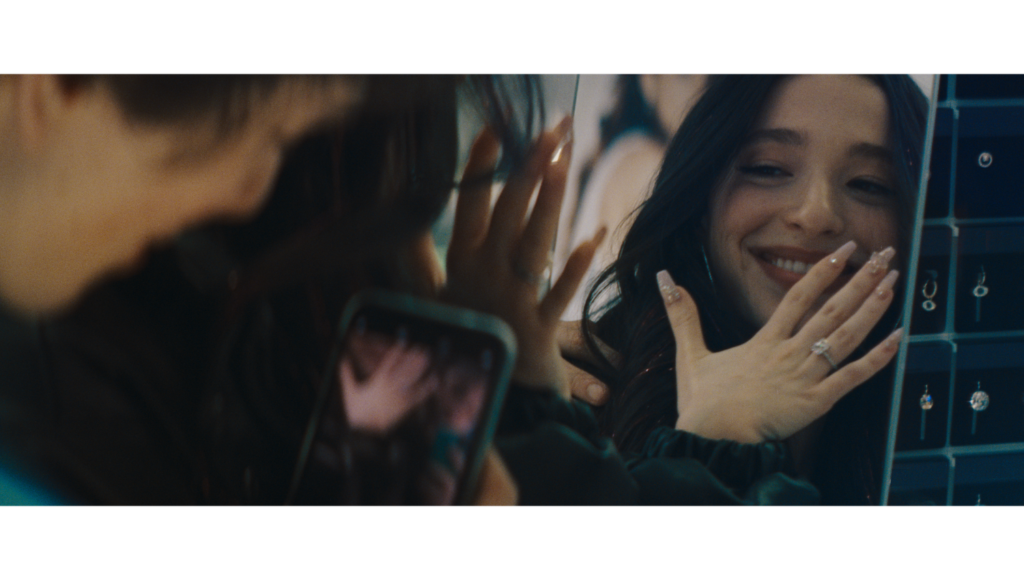
Anora
James Brown
Sean Baker’s Palme d’Or winning film Anora emerges as a bawdy yet profound fable of modern survival, imbued with the filmmaker’s gritty realism and compassionate lens. The story follows Anora, played with unflinching honesty by Mikey Madison (Once Upon a Time…in Hollywood), a dancer at a New York strip club. From the outset, it’s clear that Anora’s world isn’t glamorous; it’s raw and dangerous, alive with desperation, but with a strange resilience. Baker (Red Rocket, The Florida Project), who’s long been a chronicler of less visible parts of American society, offers an unabashed look into this slice of life, giving Anora a pulse that feels familiar but also new.

As the lead actor, Madison is a revelation. Her performance oscillates between moments of intense vulnerability and sheer, almost defiant determination. Anora, or “Ani,” as she’s known, isn’t just a two-dimensional figure moving through scenes of seedy neon-lit rooms and even seedier characters. She’s a fully fleshed-out character who loves and hurts and somehow clings to her dreams with the tenacity of someone who doesn’t have much else to hold onto. Despite the somber undertones, this film is very much a comedy, and you will find as much to laugh at as you will to feel pity for.
Despite the somber undertones, this film is very much a comedy, and you will find as much to laugh at as you will to feel pity for.
Baker injects a screwball comedy element into Anora, delivering laughs in unexpected places as the film leans into the absurdities that define Ani’s daily grind. Things change for her when she is introduced to the son of a Russian oligarch, whom she eventually marries. Here, Anora evokes shades of a modern-day Pretty Woman meets Married to the Mob, but with a far more cynical, unvarnished edge. There’s nothing sanitized here, no fairytale gloss, just Baker’s unfiltered style of realism. Scenes unfold in dimly lit strip clubs and sleek, modern mansions and Vegas hotel suites, each one a testament to the intricately layered storytelling Baker has mastered.
What’s remarkable about Anora is its ability to straddle various tones without losing its emotional center. One minute, Baker has us laughing at Ani’s improbable scrapes with fate, and the next, we’re sinking into a melancholy that feels all too real. The supporting cast brings depth to this patchwork of colorful characters that orbit Ani’s world, especially Mark Eydelshteyn and Yura Borisov. As Ivan, Ani’s love interest, Eydelshteyn shines with subtlety and humor, adding layers to their otherwise unconventional romance. Their chemistry is electric yet understated, grounded in the same unsentimental truth that defines the film.
In the end, Anora is a film that lingers, its themes of hope, survival, and resilience echoing long after the credits roll. Sean Baker doesn’t ask for sympathy for Ani and her cohorts but instead offers a window into their lives, challenging us to confront our own perceptions. Anora is not only one of Baker’s finest works to date but a bold and unapologetic story that serves as a reminder of cinema’s power to evoke empathy and understanding.

1 thought on “Anora”
Pingback: Sean Baker's 'Anora:' Navigating Cringe and Charm – Texas Art & Film